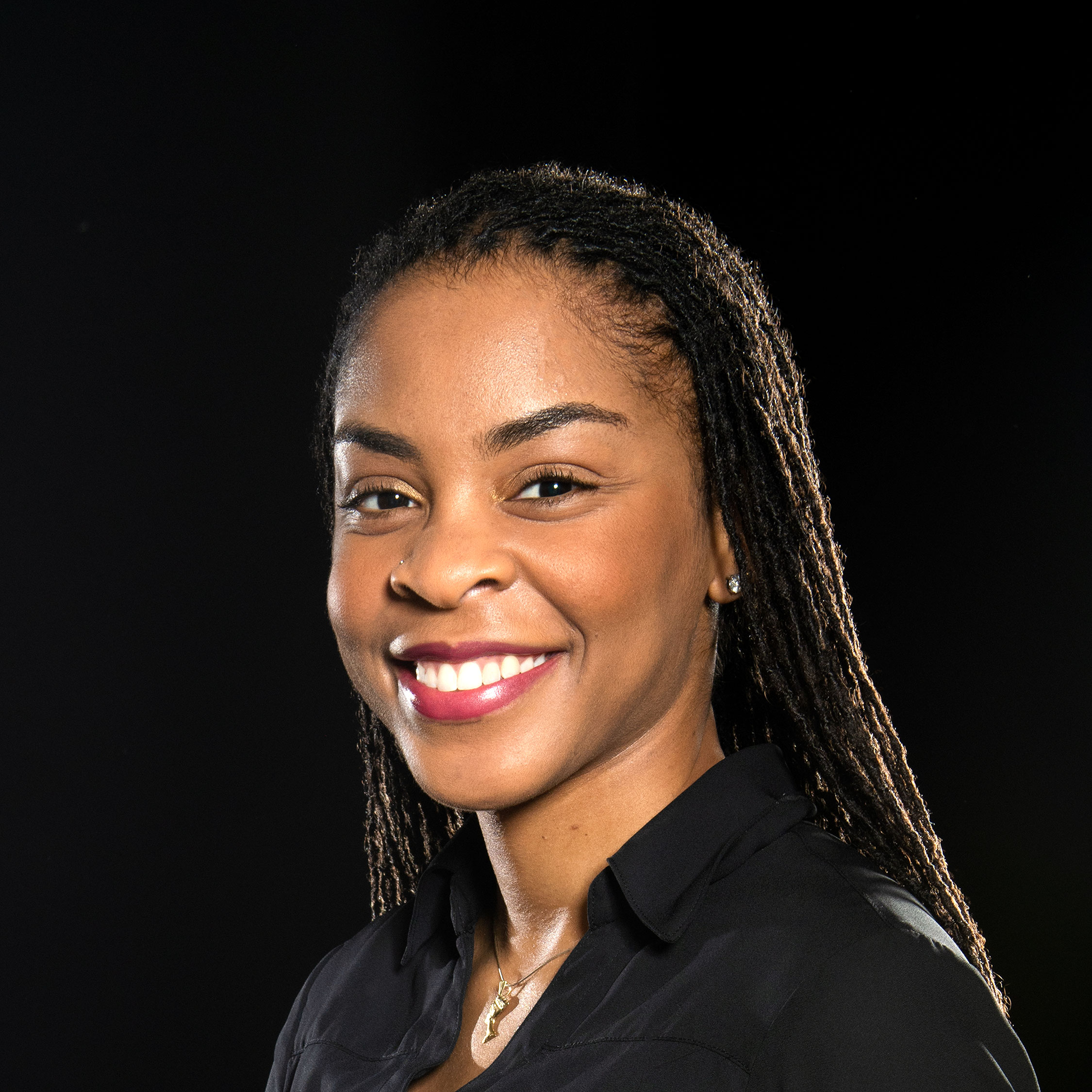
Dr. Castel Sweet
 Dr. Castel Sweet
Dr. Castel Sweet
Written by Karlos L. Marshall, Fitz Center for Leadership in Community, Community and Neighborhood Partnerships
Born and raised in the inner-city of Memphis, Tennessee — Dr. Castel Sweet is an emerging practitioner in the field of community-university partnerships. As a resounding voice of courage, her intellect to mitigating historical power imbalances is fueled by her reverence of being a lifelong learner. To understand who Castel is as a community-builder, scholar and practitioner, and social justice advocate, one must understand the depths of which she has traveled intellectually, socially, and culturally, as a Black woman.
In reflecting on her childhood, Castel recalls taking a bus to a county school outside of Memphis city limits due to a desegregation busing mandate. “I didn’t realize it until I was much older, but would question why I was assigned to a school that was literally in another district,” stated Castel, “while my neighborhood friends who lived a couple of streets over were assigned to a school that was less than a five-minute drive from my house.” This has metaphorically become resemblance of her professional journey, as she has often found herself on the road less traveled. After a family move during 7th grade, Castel would enroll back into the public school system — where she would defy the statistical odds.
Following high school graduation, her family would embark upon a 13-hour drive from Memphis to Hampton University. Without having a campus visit prior to her first-year arrival, she quickly learned about the institution’s prowess as a leader amongst the “Black Ivy League.” Castel’s adventurous nature would challenge her in unforeseen ways to come. Although the university was a Historically Black College and University (HBCU), Castel noted that “being from an urban city and surrounded by students who were coming from very well-off suburban areas, Hampton forced me to develop my own comfort and understanding of my working-class identity.” It was here that intersectionality — particularly the intersections of class and race — became readily visible.
Between school breaks, Castel would intern at a local nonprofit in Memphis that supported returning citizens who were previously incarcerated. It was here that she experienced the power of mentorship. She was able to watch the executive director, also a woman of color, utilize her doctorate degree to disrupt social institutions and structures for inclusion and equity. Castel then enrolled in a Ph.D. program at Louisiana State University. She quickly ran into the realities of academic spaces that did not value diversity and lived experiences, as they challenged the credibility of non-traditional frameworks of scholarship. Consequently, Castel began to explore other avenues of meaning and release; which would be forever game-changing. “I started volunteering at a local community garden and was immediately introduced to the untapped world of community-university partnerships.” This would become a watershed moment in which Dr. Sweet’s vocational calling started to flow like a mighty stream. These experiences have led to the culmination of the remarkable woman many of us have come to admire today.
In her current role in the Fitz Center for Leadership in Community, she provides leadership for community-engaged learning and scholarship by assisting faculty with community-based coursework and community participatory research. Castel also leads the Semester of Service program—which provides community nonprofits with full-time student support for an academic term — to build organizational capacity.
As a community-builder, the term ‘community’ itself is both tangible and transcendental to Castel. From advancing global projects that advocate for human rights to building capacity for local grassroots movements, Castel is a true champion of the people. She stands unflinchingly in the corner of the underdog, as there is no question that she has a fight in this game. A hip-hop scholar, Castel speaks truth to power like your favorite lyrical MC. She has a knack for touching the soul of the people and making it accessible to a wide audience like sweet jazz. She also possesses the audacity to facilitate crowd-moving conversations of harsh realities — like blues instrumentalists at the backdrop of vocal struggle. As a social justice advocate, she goes beyond amplifying the voice of the voiceless. She opens doors that have historically been locked, forges pathways that move us through the forest in the trees, and pulls up chairs so everyone can eat off of the table of equitable resource distribution and access to information.
Dr. Sweet also advocates for the importance of community voice through the Facing Dayton project—which brings narratives of Dayton storytellers to life. As a sociologist, Castel uses her background in the classroom as an instructor for Creating Inclusive Communities and Sociology courses. Further, Castel was recently part of the inaugural group for the Diversity and Social Justice Fellows of UD.
The greatest aspirations of the world are intrinsically linked to those that possess divergent voices — to dismantle systemic injustices through a committed courageousness. From standing on the shoulders of African (American) ancestors, to ushering in the next generation of change agents, Dr. Castel Sweet is undoubtedly one of our greatest hopes—in achieving the institutional dream of becoming the University for the Common Good.
